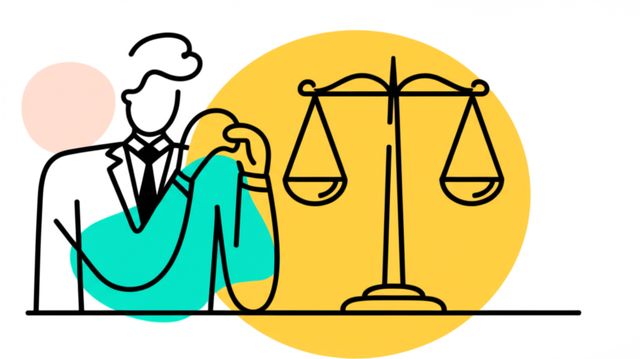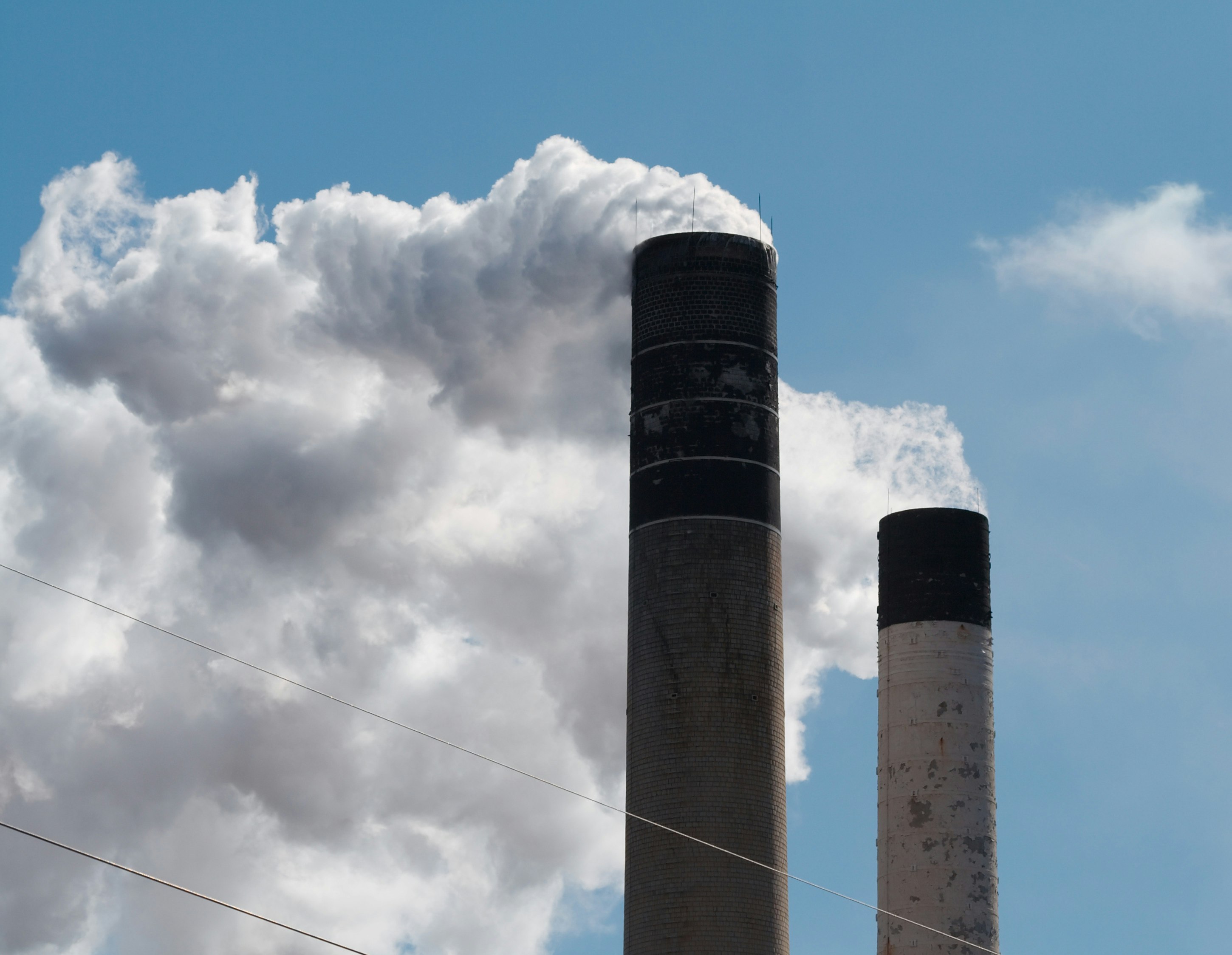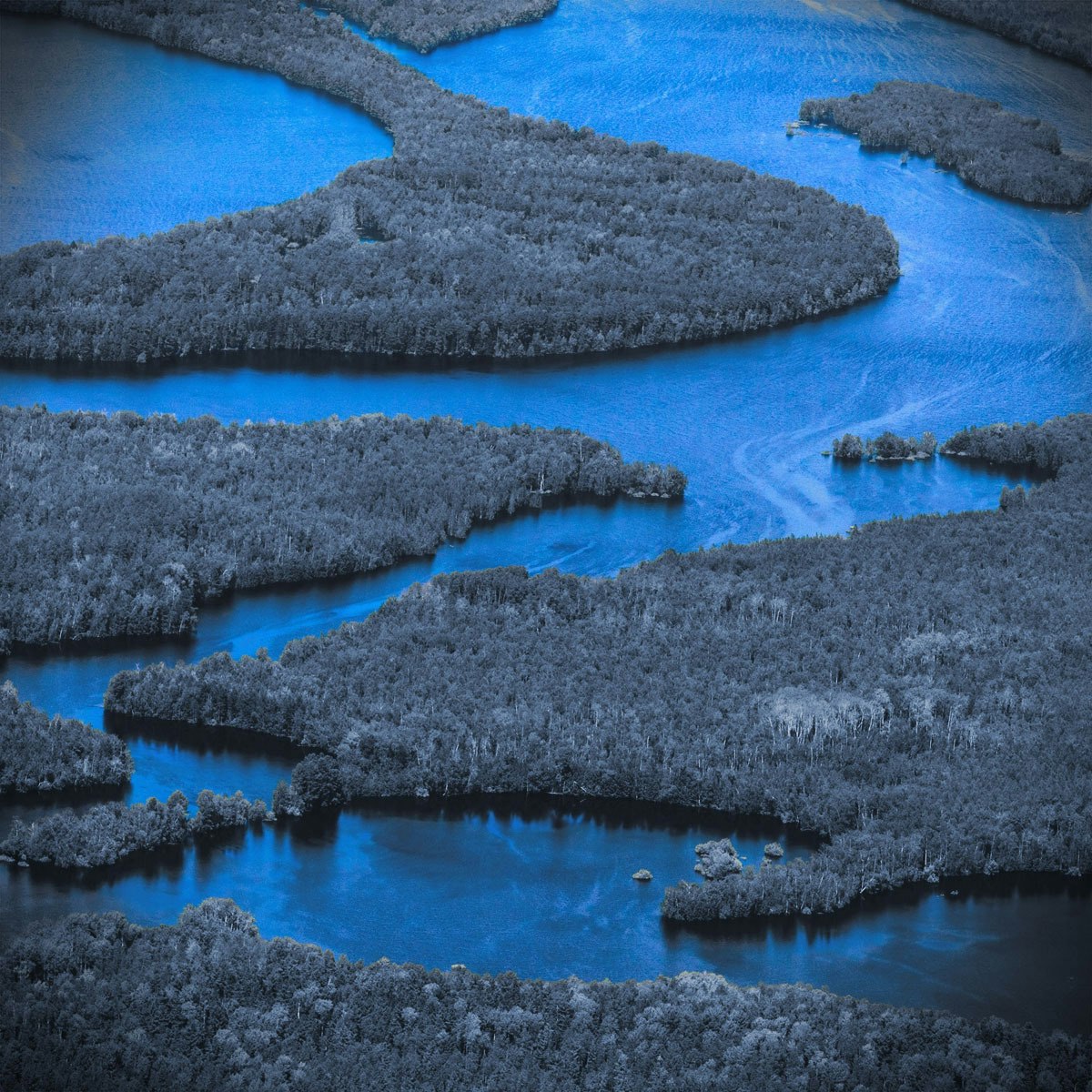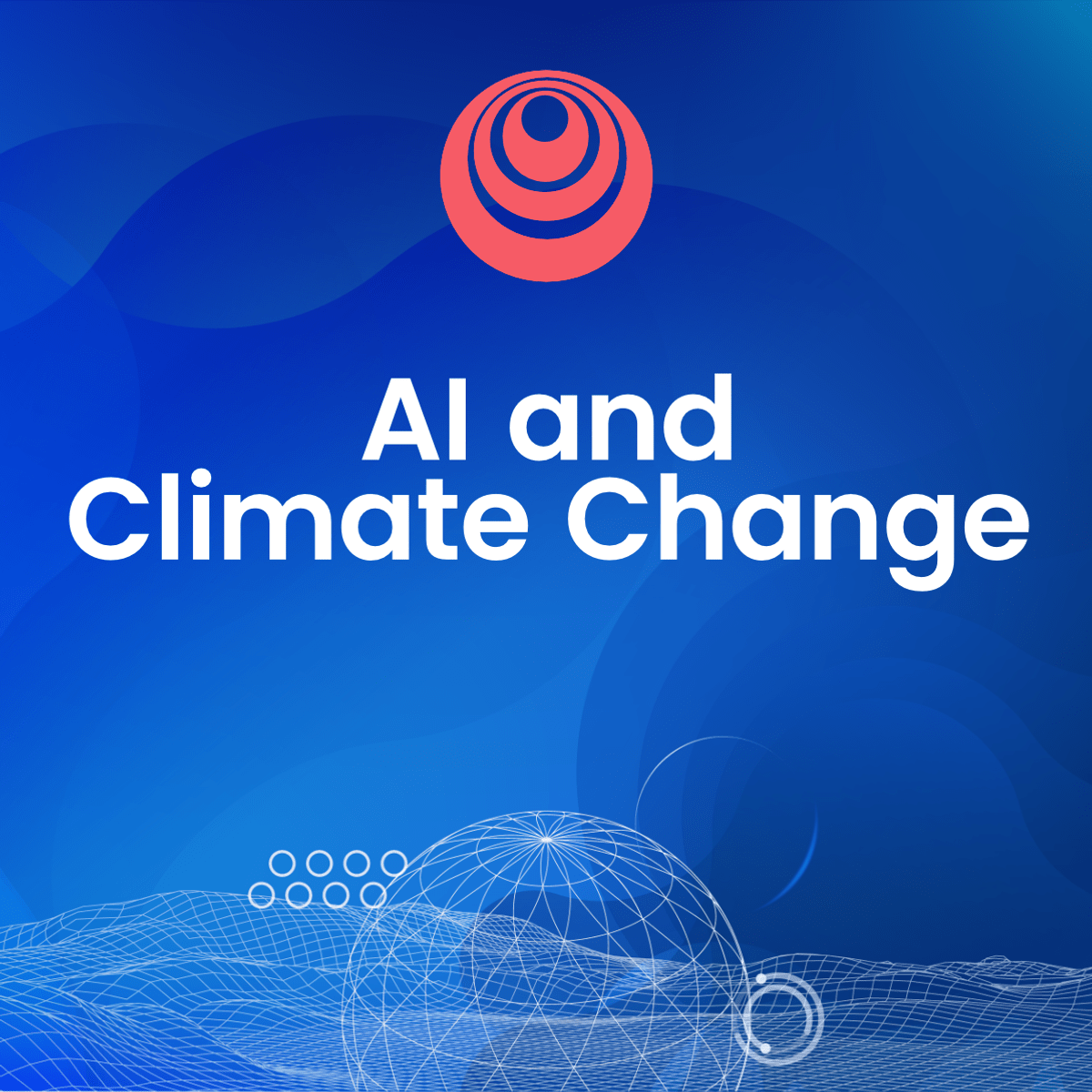Environmental Lawyer
Comprehensive Guide to Becoming an Environmental Lawyer
Environmental law is a dynamic and vital field dedicated to protecting the natural world and human health through legal frameworks. It addresses the complex interplay between human activities and the environment, striving to mitigate harm and promote sustainability. For those passionate about safeguarding our planet, a career as an environmental lawyer offers a direct path to making a meaningful impact. This field is not just about litigation; it encompasses policy development, regulatory compliance, and advocacy, working at the intersection of science, law, and public interest.
The work of an environmental lawyer can be incredibly engaging, tackling some of the most pressing issues of our time, such as climate change, biodiversity loss, and pollution. Environmental lawyers often find themselves at the forefront of developing and interpreting laws that shape how societies interact with the natural world. This career can be intellectually stimulating, requiring a deep understanding of legal principles as well as a grasp of scientific concepts. The opportunity to collaborate with scientists, policymakers, and community groups to forge solutions adds another layer of excitement and fulfillment to this profession.
What Does an Environmental Lawyer Do?
Environmental lawyers champion the cause of environmental protection through various avenues. Their work involves a blend of legal expertise, scientific understanding, and a commitment to ecological well-being. They serve a diverse clientele, including individuals, corporations, non-governmental organizations (NGOs), and government agencies, addressing a wide array of environmental concerns.
Core Responsibilities and Types of Cases
The daily tasks of an environmental lawyer are multifaceted and can vary significantly based on their specific role and employer. Core responsibilities often include litigation, ensuring compliance with environmental regulations, and advocating for stronger environmental protections. Litigation might involve representing clients in court to address violations of environmental laws or defending clients accused of such infractions. Compliance work focuses on guiding businesses and organizations to adhere to environmental laws and regulations, helping them obtain necessary permits and conduct environmental impact assessments. Advocacy can take the form of working with lawmakers to draft new environmental policies or lobbying for their enactment.
Environmental lawyers tackle a broad spectrum of cases. These can range from issues of air and water quality, waste management, and chemical safety to the protection of endangered species and the promotion of renewable energy. Specific case types include pollution control, land use disputes, natural resources management, and matters related to climate change. For instance, a lawyer might work on a case involving a company allegedly discharging pollutants illegally, a dispute over land development in an ecologically sensitive area, or the implementation of regulations to reduce greenhouse gas emissions.
Many environmental lawyers find the interdisciplinary nature of their work particularly engaging. They frequently collaborate with scientists to understand the technical aspects of environmental issues and with policymakers to shape effective legal and regulatory solutions. This collaborative approach is crucial for developing well-informed and impactful strategies to address complex environmental challenges.
Work Environments
Environmental lawyers can find employment in a variety of settings, each offering distinct experiences and focus areas. These environments include private law firms, non-profit organizations (NGOs), and government agencies.
In private law firms, environmental lawyers may represent corporations, advising them on compliance with environmental regulations, or they might represent individuals or groups in environmental lawsuits. Some private firms specialize in environmental law, while others have dedicated environmental law departments. There are also private public interest law firms that are mission-driven and pursue cases to advance environmental protection, often financed through contingency fees or by representing public interest clients.
Non-profit organizations and environmental advocacy groups play a significant role in environmental law. Lawyers in these settings often focus on litigation to enforce environmental laws, policy advocacy to strengthen environmental protections, and public education campaigns. Organizations like Earthjustice and the Natural Resources Defense Council (NRDC) are well-known examples.
Government agencies at the federal, state, and local levels also employ a large number of environmental lawyers. These attorneys may be involved in drafting environmental legislation and regulations, enforcing environmental laws, providing legal counsel to government bodies, and representing the government in environmental litigation. Key federal agencies in the U.S. include the Environmental Protection Agency (EPA), the Department of Justice (DOJ), and the Department of the Interior.
Some environmental lawyers also work as in-house counsel for corporations, helping businesses navigate complex environmental regulations and implement sustainable practices. Others may find roles in academia, teaching and researching environmental law, or in international organizations working on global environmental issues.
For those seeking to build a foundational understanding of environmental legal principles, online courses can offer valuable insights. These resources can be particularly helpful for grasping the complexities of environmental regulations and policy.
Understanding the diverse work environments and the nature of the cases handled can help aspiring environmental lawyers determine which path best aligns with their interests and career goals. The field offers a wide range of opportunities to contribute to environmental protection and sustainability.
Collaboration with Scientists and Policymakers
A distinctive and crucial aspect of environmental law is the close collaboration between lawyers, scientists, and policymakers. Environmental issues are often scientifically complex, requiring lawyers to work alongside experts to understand the technical data and implications of pollution, habitat destruction, or climate change. This collaboration ensures that legal arguments and strategies are grounded in sound scientific evidence. Scientists can provide expert testimony, help interpret data, and contribute to the development of effective environmental regulations.
Similarly, environmental lawyers frequently engage with policymakers at all levels of government. This interaction can involve advising on the drafting of new environmental laws and regulations, advocating for policy changes, or working to ensure the effective implementation and enforcement of existing policies. By bridging the gap between legal frameworks and policy objectives, environmental lawyers play a vital role in shaping how society addresses environmental challenges.
This interdisciplinary approach means that while a strong legal background is paramount, an understanding of basic scientific principles and policy processes can be highly beneficial for an environmental lawyer. However, it's important to note that deep scientific expertise is not typically a prerequisite, as the collaboration allows scientists to focus on the science and lawyers on the law. The ability to communicate complex scientific and legal information clearly to diverse audiences is a key skill in this collaborative environment.
For individuals interested in the intersection of environmental science, policy, and community action, exploring courses on stakeholder collaboration and environmental justice can provide valuable perspectives.
Formal Education Pathways
Embarking on a career as an environmental lawyer requires a significant commitment to education. The journey typically involves several distinct stages, from pre-university preparation to postgraduate specialization. Understanding these educational prerequisites is critical for anyone considering this demanding yet rewarding field.
Pre-University Preparation
While still in high school, aspiring environmental lawyers can begin laying a strong foundation for their future studies. Engaging in coursework related to civics, government, history, and debate can develop critical thinking and argumentation skills essential for legal practice. Science courses, particularly biology, chemistry, and environmental science, provide a basic understanding of the ecological principles that underpin many environmental laws and regulations. Developing strong reading comprehension and writing skills through English and literature classes is also paramount, as lawyers spend a considerable amount of time drafting legal documents and analyzing complex texts.
Extracurricular activities can further enhance a high school student's profile. Participating in debate clubs, model United Nations, environmental clubs, or volunteering for local conservation initiatives can demonstrate an early commitment to public interest and environmental issues. These experiences can also provide valuable insights into the complexities of environmental challenges and the role of advocacy.
While there isn't a single prescribed path, a well-rounded high school education that emphasizes analytical reasoning, communication skills, and an awareness of societal and environmental issues will serve as excellent preparation for the rigorous academic journey ahead.
Undergraduate Degrees: Recommended Majors
After high school, the next step is to obtain a bachelor's degree. While law schools in the United States do not require a specific undergraduate major for admission, certain fields of study can provide a particularly relevant background for aspiring environmental lawyers. Majoring in political science can offer a strong understanding of governmental structures, policymaking processes, and legal systems. Environmental studies or environmental science programs provide in-depth knowledge of ecological principles, conservation issues, and the scientific basis for environmental regulations.
Other beneficial majors include economics, which can help in understanding the economic impacts of environmental policies and regulations; philosophy, which hones analytical and logical reasoning skills; and English or communications, which strengthen writing and public speaking abilities. Some universities may even offer pre-law programs or specialized tracks within broader majors that focus on environmental policy and law. Ultimately, the best undergraduate major is one that the student is passionate about and in which they can excel academically, as a strong GPA is a significant factor in law school admissions.
Regardless of the chosen major, students should focus on developing strong research, analytical, and communication skills. Taking courses that involve significant reading, writing, and critical thinking will be advantageous. Seeking out internships or volunteer opportunities with environmental organizations, government agencies, or law firms during undergraduate years can also provide valuable experience and networking opportunities.
For those looking to supplement their undergraduate studies with a foundational understanding of global environmental challenges, several online courses offer accessible introductions.
Law School Requirements: LSAT and Juris Doctor (JD) Programs
The cornerstone of becoming an environmental lawyer is earning a Juris Doctor (JD) degree from an accredited law school. This typically involves three years of full-time study after completing a bachelor's degree. Admission to law school is highly competitive and generally requires a strong undergraduate GPA and a satisfactory score on the Law School Admission Test (LSAT). The LSAT is a standardized exam designed to assess reading comprehension, logical reasoning, and analytical reasoning skills – abilities deemed crucial for success in law school and the legal profession.
During the first year of law school, students typically take a set of core courses covering fundamental areas of law, such as contracts, torts, criminal law, civil procedure, and constitutional law. In the second and third years, students have the opportunity to choose elective courses, allowing them to specialize in areas of interest. Aspiring environmental lawyers should seek out courses in environmental law, administrative law, natural resources law, energy law, land use law, and international environmental law. Many law schools also offer clinics, journals, and student organizations focused on environmental law, providing practical experience and networking opportunities.
Selecting a law school with a strong environmental law program can be beneficial. Some institutions are renowned for their faculty, curriculum, and resources in this field. When choosing a law school, consider factors such as the range of environmental law courses offered, opportunities for hands-on experience through clinics or externships, the presence of specialized research centers, and the strength of the alumni network in the environmental law sector.
For a general introduction to legal concepts that are foundational to environmental law, consider exploring relevant online courses.
Successfully completing a JD program and passing the bar examination in the jurisdiction where one intends to practice are essential steps to becoming a licensed attorney.
Specialized LLM Programs and PhD Opportunities
After obtaining a Juris Doctor (JD) degree and gaining admission to the bar, some lawyers choose to pursue further specialized education to enhance their expertise in environmental law. A Master of Laws (LLM) degree is a common postgraduate option. LLM programs in environmental law offer advanced coursework and research opportunities in specific subfields such as climate change law, energy law, natural resources law, or international environmental law. These programs typically take one year of full-time study to complete and can be particularly valuable for those seeking to deepen their knowledge, switch to environmental law from another practice area, or pursue academic or highly specialized policy roles.
Some universities offer joint JD/LLM programs, allowing students to earn both degrees in an accelerated timeframe, often three-and-a-half to four years. This can be an efficient way for students highly committed to environmental law to gain specialized credentials. An LLM is not a requirement to practice environmental law, but it can provide a competitive edge and open doors to certain specialized positions.
For those interested in academic careers or high-level research and policy analysis, a Doctor of Philosophy (PhD) or a Doctor of Juridical Science (SJD or JSD) in environmental law or a related field may be pursued. These doctoral programs involve extensive research and the completion of a dissertation, contributing original scholarship to the field. PhD programs are more common for individuals with a strong interest in interdisciplinary research, potentially combining law with fields like environmental science, economics, or political science. Completing a PhD is a significant time commitment, often taking several years beyond the JD and LLM.
To gain a deeper understanding of specialized areas within environmental law, such as international water law or ESG principles, consider these advanced online courses.
These advanced degrees can significantly bolster a lawyer's credentials and expertise, paving the way for leadership roles and specialized contributions to the field of environmental law.
Online and Independent Learning
While formal education is the primary route to becoming a licensed environmental lawyer, online courses and independent learning can play a significant supplementary role. These resources can help individuals build foundational knowledge, explore specific niches within environmental law, and stay abreast of new developments in this rapidly evolving field. For career pivoters or those exploring the field, online learning offers a flexible and accessible way to gauge interest and acquire initial understanding before committing to a full law degree.
OpenCourser provides a vast library of legal studies courses and resources. Learners can easily search for courses on specific environmental law topics, compare syllabi, and read reviews to find options that fit their learning goals. Features like the "Save to List" button help organize interesting courses for future reference. For those looking to deepen their understanding beyond online courses, OpenCourser's "Reading List" section on course pages often suggests relevant books and academic texts.
Feasibility of Self-Study for Foundational Concepts
Self-study, particularly through structured online courses, can be a feasible way to grasp foundational concepts in environmental law and policy. While it won't replace a formal law degree for practicing law, it can provide a strong introductory understanding of key principles, landmark cases, and the general structure of environmental regulations. This can be especially valuable for individuals considering a career change into environmental law, students wishing to supplement their current studies, or professionals in related fields (like environmental science or urban planning) who want to understand the legal context of their work.
Online platforms offer a wealth of introductory courses covering the basics of environmental law, often taught by experienced academics and practitioners. These courses can explain core legal doctrines, the roles of different governmental agencies, and the significance of major environmental statutes. For individuals new to the field, this self-paced learning can demystify complex legal jargon and provide a clearer picture of what environmental law entails. It allows learners to explore the subject matter at their own pace and identify areas of particular interest before committing to more intensive, formal education pathways.
However, it is crucial to have realistic expectations. Self-study and online courses can build knowledge and understanding, but they do not confer the qualifications needed to practice law. A Juris Doctor (JD) degree and passing the bar exam remain essential for becoming a licensed attorney. Nevertheless, a solid grasp of foundational concepts through independent learning can make the formal study of law more accessible and can demonstrate a proactive interest in the field to admissions committees or potential employers in related, non-licensed roles.
To begin exploring the foundational aspects of environmental concerns and policy, consider these accessible online courses:
Key Topics to Explore
For those engaging in online or independent learning in environmental law, focusing on key topics can provide a comprehensive overview of the field. Understanding regulatory frameworks is crucial. This involves learning about major environmental statutes such as the Clean Air Act, Clean Water Act, Endangered Species Act, and hazardous waste laws like RCRA and CERCLA (Superfund). Exploring how these laws are implemented and enforced by agencies like the EPA is also important.
Case law analysis forms another significant area. Studying landmark environmental law cases helps illustrate how legal principles are applied in real-world situations and how courts interpret environmental statutes. This can provide insights into legal reasoning and the evolution of environmental jurisprudence. Many online resources and course materials discuss significant cases and their implications.
Other vital topics include international environmental law, which addresses transboundary pollution, global commons, and international treaties like the Paris Agreement. Understanding environmental justice issues, which concern the fair treatment and meaningful involvement of all people regardless of race, color, national origin, or income with respect to the development, implementation, and enforcement of environmental laws, regulations, and policies, is increasingly important. Concepts like sustainability, natural resource management, and land use planning law are also central to the field.
These courses offer a deeper dive into some of these key topics:
Books can also provide in-depth exploration of these crucial areas. These selected texts offer comprehensive insights into environmental pollution and control, which are central tenets of environmental law.
Portfolio-Building Through Mock Trials or Policy Analysis Projects
Engaging in practical exercises like mock trials or policy analysis projects can be an excellent way for aspiring environmental lawyers to build a portfolio and develop critical skills, even outside of a formal law school setting. These activities allow learners to apply theoretical knowledge to simulated real-world scenarios. Mock trials, for instance, can help hone argumentation, evidence presentation, and legal reasoning skills. Participating in or even organizing a mock environmental law case can provide invaluable experience in constructing legal arguments and understanding courtroom dynamics.
Policy analysis projects offer another avenue for portfolio development. This could involve selecting a current environmental issue, researching the existing legal and regulatory framework, analyzing its effectiveness, and proposing potential policy improvements. Such a project demonstrates analytical capabilities, research skills, and an understanding of the policy-making process. These analyses can be written up as reports or white papers, which can then be showcased to demonstrate initiative and expertise to potential employers or graduate programs.
Online courses sometimes incorporate these types of projects. Additionally, many universities or environmental organizations may host workshops or competitions that include mock trials or policy challenges. For self-directed learners, numerous online resources provide guidance on how to structure policy analyses or prepare for moot court-style arguments. Building a portfolio of such work not only enhances learning but also provides tangible evidence of one's commitment and capabilities in the environmental law field.
Consider exploring courses that involve data analysis and presentation, as these skills are valuable in policy analysis and legal argumentation.
Supplementing Formal Education with Niche Certifications
While a Juris Doctor (JD) is the primary legal qualification, niche certifications can supplement formal education and enhance an environmental lawyer's expertise in specific areas. These certifications might not be legal credentials in themselves but can demonstrate specialized knowledge or skills relevant to environmental practice. For example, certifications in areas like environmental auditing, hazardous materials management, or sustainability reporting (such as those related to ESG principles) can be valuable.
Professionals in related fields who work alongside environmental lawyers, such as environmental consultants or scientists, may also benefit from certifications that provide a deeper understanding of environmental regulations or compliance procedures. Some organizations offer certifications specifically for environmental professionals that cover aspects of environmental law and policy. While these do not qualify an individual to practice law, they can improve their ability to collaborate with legal teams and understand the legal implications of their work.
For practicing lawyers, niche certifications or specialized training programs can be a form of continuing legal education (CLE) or a way to develop a sub-specialty within environmental law. This could involve programs focused on renewable energy project finance, international climate negotiations, or advanced environmental dispute resolution. These can be particularly useful for lawyers looking to pivot into emerging areas of environmental law or to deepen their expertise in a complex domain. Always verify the credibility and recognition of any certifying body or program before enrolling.
Online courses can offer introductions to some of these niche areas, helping learners decide if pursuing a full certification is worthwhile.
Career Progression for Environmental Lawyers
The career path for an environmental lawyer can be diverse and rewarding, offering opportunities for growth, specialization, and leadership. Progression often depends on the work environment (private firm, government, or non-profit), individual performance, and evolving interests. Understanding the typical trajectory can help aspiring lawyers plan their careers and set realistic expectations.
Entry-Level Roles: Paralegal, Legal Clerk
For individuals who have completed their undergraduate studies and are considering or preparing for law school, entry-level roles such as paralegal or legal clerk can provide invaluable exposure to the legal field, including environmental law. While not lawyer positions, these roles offer a firsthand look at the day-to-day operations of a law practice or legal department. Responsibilities might include legal research, drafting documents, organizing case files, and assisting attorneys with trial preparation. This experience can solidify one's interest in pursuing a law degree and provide a practical understanding of legal procedures.
After graduating from law school and passing the bar exam, newly minted environmental lawyers typically begin their careers as associate attorneys in law firms, staff attorneys in non-profit organizations, or in entry-level positions within government agencies. In these initial roles, they usually work under the supervision of more experienced lawyers, gaining hands-on experience in case management, legal research and writing, client interaction, and courtroom procedures. The focus during these early years is on developing core legal skills and building a foundational understanding of environmental law practice.
Some law graduates may also pursue judicial clerkships, working for a judge at the state or federal level. While not specific to environmental law, a clerkship provides deep insight into the judicial process and hones research and writing skills, which can be highly beneficial for any legal career, including environmental law. Entry-level roles are crucial for building a strong foundation and a professional network within the environmental law community.
While formal legal training is distinct, understanding foundational environmental principles can be beneficial. These courses can offer insights into the subject matter that environmental legal professionals often encounter.
Mid-Career Paths: Specialization in Sectors like Energy or Conservation
As environmental lawyers gain experience, typically after five or more years in practice, they often begin to specialize in particular sectors or areas of environmental law. This specialization allows them to develop deeper expertise and become recognized experts in their chosen niche. Mid-career paths can vary widely depending on the lawyer's interests and the opportunities available within their organization or the broader legal market. Common areas of specialization include energy law, focusing on renewable energy development, oil and gas regulation, or utility oversight.
Another significant area is conservation law, which involves protecting biodiversity, endangered species, and natural habitats, often through land trusts, conservation easements, or litigation under laws like the Endangered Species Act. Lawyers might specialize in water law, dealing with water rights, water quality, and marine resource protection. Others may focus on air quality, hazardous waste management, climate change litigation, or international environmental law. Specialization often involves handling more complex cases, taking on greater responsibility for client matters, and potentially supervising junior attorneys.
Mid-career environmental lawyers may also take on roles with increased leadership, such as senior associate in a law firm, program director in a non-profit, or a more senior attorney position within a government agency. Networking, publishing articles, speaking at conferences, and actively participating in bar association committees related to environmental law can further enhance a lawyer's reputation and career progression during this stage.
For those looking to deepen their understanding of specific environmental sectors, targeted online courses can be beneficial.
Senior Roles: Partnership, Advisory Positions
With extensive experience and a proven track record, environmental lawyers can advance to senior roles that involve significant leadership, strategic decision-making, and influence within their organizations and the broader field. In private law firms, a common senior role is that of partner. Partners are typically part-owners of the firm and are responsible for client development, managing major cases, mentoring junior lawyers, and contributing to the firm's overall strategy and profitability. Reaching partnership usually requires many years of dedicated work, exceptional legal skills, and a strong ability to attract and retain clients.
In government agencies, senior environmental lawyers can become department heads, general counsel, or occupy high-level policy advisory positions, shaping environmental regulations and enforcement strategies. Within non-profit organizations, experienced lawyers may ascend to roles such as litigation director, chief legal officer, or executive director, leading advocacy efforts and managing the organization's legal work. Some senior environmental lawyers become renowned experts in their field, sought after for their advice by corporations, government bodies, and international organizations. They may serve on advisory boards, testify before legislative committees, or act as mediators or arbitrators in complex environmental disputes.
These senior positions often require not only deep legal expertise but also strong leadership, management, and communication skills. The responsibilities extend beyond handling individual cases to shaping the direction of their organizations and influencing the development of environmental law and policy. According to the U.S. Bureau of Labor Statistics, the median annual salary for all lawyers was $135,740 in May 2022. Research.com indicates an average annual salary for Environmental Lawyers in the US at $132,377, with some reports showing salaries reaching as high as $249,443 annually. Salary can vary based on experience, location, and sector. For instance, lawyers in the federal government often have competitive salaries. While specific data for environmental lawyers can vary, the general outlook for lawyers is a projected growth of 9% from 2020 to 2030.
For those aspiring to senior roles, continuous learning and staying abreast of evolving legal and environmental landscapes is crucial. Books on specialized topics can offer deep insights.
Transitioning to Policy-Making or Academia
After a fulfilling career in practicing environmental law, some professionals choose to transition into roles focused on policy-making or academia. Leveraging their extensive legal experience and deep understanding of environmental issues, these individuals can make significant contributions in different capacities. Transitioning to policy-making might involve working for government agencies at a higher strategic level, joining legislative staff to help draft environmental laws, or working for think tanks and advocacy organizations to develop and promote environmental policy proposals. Their practical experience in how laws are implemented and challenged can be invaluable in crafting more effective and pragmatic policies.
A move into academia allows experienced environmental lawyers to share their knowledge and mentor the next generation of legal professionals. This could involve becoming a law professor, teaching courses in environmental law, supervising student clinics, and conducting scholarly research. Academic roles often provide opportunities to delve deeper into theoretical aspects of environmental law, contribute to legal scholarship through publications, and engage in public discourse on pressing environmental issues. Some may also develop and lead specialized environmental law centers or programs within universities.
Such career transitions often build upon the skills and reputation developed throughout a legal career. Strong analytical abilities, a comprehensive understanding of environmental law, and a robust professional network are all assets in these new endeavors. For those who are passionate about shaping the future of environmental protection beyond the courtroom or direct client representation, policy-making and academia offer impactful alternative pathways.
Individuals considering these transitions might find courses on policy development or advanced environmental topics useful for refreshing or broadening their knowledge.
Skills and Competencies
A successful career as an environmental lawyer demands a unique blend of legal acumen, scientific literacy, and interpersonal skills. Mastering these competencies is crucial for effectively navigating the complexities of environmental law and advocating for clients and causes. These skills are developed through formal education, practical experience, and continuous professional development.
Legal Research and Writing Proficiency
At the core of any legal practice, including environmental law, are exceptional legal research and writing skills. Environmental lawyers must be adept at finding, analyzing, and synthesizing vast amounts of legal information, including statutes, regulations, case law, and administrative decisions. This research forms the backbone of legal arguments, client advice, and policy recommendations. Proficiency in using legal databases and research tools is essential.
Equally important is the ability to communicate legal analysis clearly and persuasively in writing. Environmental lawyers draft a wide array of documents, such as legal briefs, memos, contracts, settlement agreements, and regulatory filings. These documents must be precise, well-reasoned, and tailored to their intended audience, whether it be a judge, a client, a regulatory agency, or the public. Strong writing skills ensure that complex legal and environmental issues are presented effectively and that the lawyer's position is clearly articulated and supported.
Developing these skills begins in law school through coursework, legal writing programs, and participation in law journals or moot court competitions. Continuous practice and refinement throughout one's career are necessary to maintain a high level of proficiency. Many online resources and continuing legal education programs also focus on enhancing legal research and writing abilities.
For those looking to sharpen these fundamental skills, even before or alongside formal legal training, courses focusing on critical analysis and effective communication can be beneficial.
Negotiation and Public Speaking
Negotiation is a critical skill for environmental lawyers, as many environmental disputes are resolved outside of the courtroom. Whether negotiating settlements in litigation, permit conditions with regulatory agencies, or contractual terms in a business transaction, the ability to effectively advocate for a client's interests while seeking mutually agreeable solutions is paramount. Strong negotiation involves thorough preparation, strategic thinking, clear communication, and the ability to understand and address the concerns of opposing parties.
Public speaking skills are also vital. Environmental lawyers often need to present arguments in court, speak at public hearings, make presentations to clients or community groups, and participate in conferences or debates. The ability to articulate complex legal and environmental issues clearly, concisely, and persuasively to diverse audiences is essential for effective advocacy. Confidence, clarity, and the ability to engage an audience are key components of successful public speaking in this field.
These skills are often developed through practical experience, such as participating in mock trials, clinical programs in law school, and taking on speaking opportunities throughout one's career. Courses in negotiation, alternative dispute resolution, and public speaking can also provide valuable training and techniques. Being an effective negotiator and a compelling public speaker can significantly enhance an environmental lawyer's ability to achieve positive outcomes for their clients and the environment.
Courses focusing on communication and stakeholder engagement can help build these essential competencies.
Understanding of Environmental Science Basics
While environmental lawyers are not expected to be scientists, a foundational understanding of environmental science basics is highly advantageous, if not essential. Many environmental law cases and policy discussions revolve around complex scientific concepts, data, and assessments. Lawyers who can grasp these scientific underpinnings are better equipped to understand the issues at hand, communicate effectively with expert witnesses and scientific consultants, and build stronger legal arguments.
This understanding might include basic principles of ecology, hydrology, toxicology, climate science, and pollution Ccntrol technologies. For example, a lawyer working on a water pollution case would benefit from understanding how pollutants travel in waterways and their ecological impacts. Similarly, a lawyer involved in climate change litigation needs a grasp of climate models and attribution science. This scientific literacy enables lawyers to ask pertinent questions, critically evaluate scientific evidence, and translate complex technical information into understandable terms for judges, juries, or policymakers.
An undergraduate degree in a science field can provide this foundation, but it's also possible to acquire this knowledge through dedicated self-study, specialized courses, or on-the-job learning. The key is not to become a scientific expert, but to develop sufficient scientific literacy to engage meaningfully with the technical aspects of environmental cases and policy.
Online courses can offer accessible introductions to core environmental science concepts relevant to legal practice.
A solid grasp of relevant scientific principles strengthens an environmental lawyer's ability to advocate effectively and contribute to sound environmental decision-making. Familiarity with the subject matter can be bolstered by reading foundational texts.
Adaptability to Evolving Regulations
The field of environmental law is characterized by its dynamic nature, with regulations and legal interpretations frequently evolving in response to new scientific understanding, technological advancements, and shifting political priorities. Consequently, adaptability is a crucial competency for environmental lawyers. They must be committed to lifelong learning and staying abreast of changes in local, national, and international environmental laws, policies, and court decisions.
This requires regularly monitoring legislative updates, new agency rules, and relevant judicial opinions. Attending conferences, participating in continuing legal education (CLE) programs, reading legal journals and environmental publications, and networking with other professionals in the field are all important ways to stay informed. The ability to quickly understand and apply new legal requirements or precedents is essential for providing accurate advice to clients and effectively representing their interests.
Adaptability also extends to responding to emerging environmental challenges, such as those posed by new technologies or a changing climate. Environmental lawyers often find themselves working on novel legal issues where there is little established precedent. This requires creativity, strong analytical skills, and the ability to apply existing legal principles to new contexts. Those who can readily adapt to this evolving landscape will be better positioned for long-term success and impact in the field of environmental law.
Courses that cover current trends and emerging issues in environmental law can help professionals maintain their adaptability.
Industry Trends Impacting Environmental Lawyers
The landscape of environmental law is continually shaped by broader societal, technological, and regulatory shifts. Understanding these trends is crucial for environmental lawyers to anticipate challenges, identify opportunities, and effectively serve their clients and the public interest. Several key trends are currently influencing the practice of environmental law, presenting both new complexities and avenues for impact.
Rise of Climate Litigation
One of the most significant trends in environmental law is the surge in climate litigation. Globally, an increasing number of lawsuits are being filed against governments and corporations concerning their actions (or inaction) related to climate change. These cases seek to hold entities accountable for greenhouse gas emissions, demand more ambitious climate policies, or seek compensation for climate-related damages. This trend is fueled by advancements in climate attribution science, which can more clearly link specific emissions sources to climate impacts, and a growing public and judicial recognition of the urgency of the climate crisis.
Climate litigation takes various forms. Some cases are based on human rights arguments, asserting that climate change infringes upon fundamental rights to life, health, or a healthy environment. Others invoke existing environmental statutes, arguing that governments are failing to meet their legal obligations to reduce emissions or protect natural resources from climate impacts. There is also a growing body of cases targeting corporations for their historical emissions, their contributions to climate misinformation, or their failure to adapt to climate risks. This rise in litigation presents both challenges and opportunities for environmental lawyers, requiring them to navigate complex scientific evidence and novel legal arguments.
For lawyers, this means a growing demand for expertise in climate change law, international environmental agreements, and human rights law. It also highlights the need for skills in presenting complex scientific information in legal settings and developing innovative legal strategies. The outcomes of these cases have the potential to significantly shape climate policy and corporate behavior worldwide.
Understanding the legal and scientific underpinnings of climate change is essential in this evolving area. Online courses can provide valuable foundational knowledge.
ESG (Environmental, Social, Governance) Reporting Demands
Another major trend impacting environmental lawyers is the rapidly growing importance of Environmental, Social, and Governance (ESG) criteria in the business and investment worlds. There is increasing pressure on companies from investors, consumers, regulators, and other stakeholders to not only improve their ESG performance but also to transparently report on their ESG risks, strategies, and outcomes. This has created a significant new area of practice for environmental lawyers, particularly those advising corporate clients.
ESG reporting involves disclosures on a wide range of environmental issues, including climate-related risks and opportunities, greenhouse gas emissions, water usage, waste management, and biodiversity impacts. Lawyers assist companies in understanding complex and evolving ESG reporting frameworks and regulations, developing internal systems for collecting and verifying ESG data, and ensuring that their public disclosures are accurate and comply with legal requirements. This is crucial to avoid "greenwashing" – making misleading claims about environmental performance – which can lead to reputational damage and legal liability.
The demand for robust ESG reporting is also driving changes in corporate governance and risk management. Environmental lawyers may be involved in advising boards of directors on their fiduciary duties related to ESG issues, integrating ESG considerations into corporate strategy, and conducting due diligence in mergers and acquisitions. As ESG becomes more mainstream, lawyers with expertise in environmental regulations, corporate governance, and sustainability will be in high demand to help organizations navigate this complex and evolving landscape. According to Norton Rose Fulbright's 2025 Annual Litigation Trends Survey, 27% of respondents saw their ESG dispute exposure grow in the past year, with a similar percentage expecting further expansion.
Courses focusing on ESG and sustainable business practices are becoming increasingly relevant for legal professionals.
Familiarity with ESG principles is becoming a core competency. These resources provide a deeper look into this domain.
Technological Tools: AI in Legal Research
Technological advancements, particularly in the realm of Artificial Intelligence (AI), are beginning to reshape various aspects of legal practice, including environmental law. AI-powered tools offer the potential to significantly enhance legal research, document review, and case management. For environmental lawyers, who often deal with vast quantities of technical data, scientific reports, and complex regulatory texts, AI can streamline workflows and improve efficiency. For example, AI can assist in quickly identifying relevant case law, analyzing large datasets for patterns relevant to environmental compliance or litigation, and even help in drafting initial versions of legal documents.
However, the integration of AI also presents new challenges and ethical considerations. Ensuring the accuracy and reliability of AI-generated information is crucial, as is addressing potential biases in AI algorithms. Data privacy and security are also important concerns when using AI tools to handle sensitive client information or confidential environmental data. Environmental lawyers will need to develop an understanding of these technologies, their capabilities, and their limitations to leverage them effectively and responsibly.
Furthermore, AI itself is becoming a subject of environmental concern due to the significant energy consumption and resource use associated with training large AI models and operating data centers. This intersection of technology and environmental impact may create new legal questions and areas of practice for environmental lawyers, focusing on the sustainability of AI and the regulation of its environmental footprint. As AI continues to evolve, lawyers who are adaptable and technologically savvy will be better positioned to navigate these changes.
While specific courses on AI in environmental law are still emerging, foundational courses on AI and its societal implications can provide a useful starting point.
Global Shifts in Regulatory Enforcement
The enforcement of environmental regulations is subject to global shifts influenced by political changes, economic conditions, international agreements, and evolving societal expectations. These shifts can significantly impact the work of environmental lawyers. For example, some periods may see strengthened enforcement efforts and increased penalties for environmental violations, while others might be characterized by deregulation or a loosening of enforcement priorities. Understanding these broader trends is crucial for advising clients on compliance and litigation risk.
International cooperation and the harmonization of environmental standards also play a role. As environmental problems like climate change and biodiversity loss are increasingly recognized as global challenges, there is a growing impetus for international agreements and coordinated enforcement actions. However, national sovereignty and differing economic priorities can lead to variations in how international environmental obligations are implemented and enforced at the domestic level. Environmental lawyers, particularly those working in international law or for multinational corporations, must navigate these complex and sometimes conflicting regulatory landscapes.
The rise of citizen enforcement and public interest litigation in many parts of the world is another important trend. Environmental laws often include provisions that allow citizens or non-governmental organizations to sue for violations, leading to a more democratized approach to environmental enforcement. This can create new avenues for holding polluters accountable but also requires lawyers to be adept at handling cases brought by or against non-governmental actors. Staying attuned to these global shifts in regulatory enforcement helps environmental lawyers provide strategic advice and effectively represent their clients' interests in a constantly changing legal environment.
Courses on international environmental law and policy can provide insights into these global dynamics.
Ethical Considerations in Environmental Law
The practice of environmental law is laden with unique ethical considerations that lawyers must navigate with care and integrity. These challenges often arise from the inherent tension between economic development, corporate interests, and the imperative of ecological preservation. Environmental lawyers have a responsibility to uphold the law while also considering the broader public interest in a healthy and sustainable environment.
Balancing Corporate Interests with Ecological Preservation
One of the most frequent ethical dilemmas for environmental lawyers, particularly those working in or for the private sector, involves balancing the economic interests of corporate clients with the need for ecological preservation. Corporations often seek legal advice on how to comply with environmental regulations in the most cost-effective manner, or they may be involved in projects that have potential environmental impacts. Lawyers have a duty to zealously represent their clients' interests within the bounds of the law. However, they also operate within a broader societal context that increasingly values environmental protection.
This can create situations where a lawyer might advise a client on the minimum level of compliance required by law, even if that level may not be fully protective of the environment. Ethical environmental lawyers strive to provide counsel that not only ensures legal compliance but also encourages responsible environmental stewardship where possible. They may advise clients on adopting best practices, exploring more sustainable alternatives, or engaging proactively with communities and regulators to address environmental concerns. Navigating these situations requires a strong ethical compass, excellent communication skills, and a nuanced understanding of both legal obligations and environmental impacts.
Transparency and honesty in advising clients about the potential long-term environmental and reputational risks associated with certain actions are also key. The increasing focus on corporate social responsibility and ESG (Environmental, Social, and Governance) factors means that short-term economic gains at the expense of significant environmental harm can lead to greater legal and financial liabilities down the line.
Understanding the ethical dimensions of environmental management is crucial for professionals in this field. Courses that explore environmental ethics can provide valuable frameworks for decision-making.
Conflicts in Indigenous Rights and Resource Extraction
Environmental law frequently intersects with the rights of Indigenous peoples, particularly in the context of natural resource extraction and land use. Many Indigenous communities have deep cultural, spiritual, and economic ties to their ancestral lands and waters, which are often rich in natural resources. Development projects such as mining, logging, oil and gas drilling, or large-scale infrastructure can have profound impacts on these communities, their traditional ways of life, and the ecosystems they depend on. This creates a complex arena of potential conflicts and ethical responsibilities for environmental lawyers.
Lawyers working in this area may represent Indigenous communities seeking to protect their rights, preserve sacred sites, or ensure they receive fair benefits from resource development. Conversely, they might represent corporations or government agencies involved in these projects. In either capacity, ethical considerations abound. These include ensuring meaningful consultation and obtaining free, prior, and informed consent (FPIC) from Indigenous communities, respecting treaty rights and aboriginal title, and addressing the disproportionate environmental burdens often faced by these communities (an aspect of environmental justice). [0gcbqv]
Navigating these issues requires sensitivity to cultural differences, a thorough understanding of Indigenous legal traditions and rights, and a commitment to upholding principles of fairness and justice. Lawyers must be mindful of power imbalances and work to ensure that the voices and concerns of Indigenous peoples are adequately heard and addressed in decision-making processes that affect their lands and resources.
Exploring courses related to environmental justice and stakeholder engagement can provide deeper insights into these complex issues.
Whistleblower Protections
Whistleblower protections are a critical component of environmental law enforcement, and environmental lawyers may encounter ethical issues related to them. Whistleblowers are individuals who report illegal or unethical activities, such as violations of environmental regulations, by their employers or other organizations. Many environmental statutes include provisions to protect whistleblowers from retaliation, such as being fired, demoted, or harassed, for reporting violations. Environmental lawyers may advise potential whistleblowers on their rights and the proper channels for reporting concerns, or they may represent whistleblowers who have faced retaliation.
Ethical considerations for lawyers in this context include maintaining client confidentiality, ensuring that whistleblowers understand the potential risks and benefits of coming forward, and navigating the complex legal procedures involved in whistleblower cases. Lawyers representing corporations or government agencies may also be involved in developing internal compliance programs that encourage employees to report concerns internally and ensure that such reports are properly investigated and addressed, thereby potentially obviating the need for external whistleblowing.
The role of whistleblowers is vital for uncovering environmental wrongdoing that might otherwise go undetected. Protecting these individuals is essential for upholding environmental laws and safeguarding public health and the environment. Environmental lawyers play a key part in ensuring these protections are effective and that those who speak out against environmental harm are not unfairly penalized.
International Justice Disparities
Environmental problems often transcend national borders, and their impacts can be disproportionately felt in developing countries or by marginalized communities globally. This raises significant issues of international justice and equity, creating ethical challenges for environmental lawyers working in the international arena. For instance, hazardous waste is sometimes shipped from wealthier nations to poorer ones with less stringent environmental regulations and enforcement, leading to significant health and environmental risks for local populations. Similarly, the impacts of climate change, largely caused by historical emissions from industrialized nations, are often most severe in developing countries that have contributed the least to the problem and have fewer resources to adapt.
International environmental lawyers may grapple with how to address these disparities through international legal frameworks, treaties, and dispute resolution mechanisms. Ethical considerations include advocating for the principle of "common but differentiated responsibilities," which recognizes that different countries have different capacities and obligations in addressing global environmental problems. Lawyers may work to ensure that international environmental agreements are fair and equitable, that technology transfer and financial assistance are provided to help developing countries meet their environmental goals, and that mechanisms exist for holding transnational corporations accountable for environmental damage caused in host countries.
The pursuit of environmental justice on a global scale requires a commitment to addressing power imbalances and ensuring that the voices and interests of vulnerable nations and communities are represented in international environmental governance. This is a complex and evolving area of environmental law that demands a strong ethical framework and a dedication to achieving more equitable environmental outcomes worldwide.
Courses focusing on international environmental law and human rights can provide context for these critical issues.
Understanding the broader context of global environmental agreements is also helpful. Books like "The Law of International Watercourses" delve into the complexities of shared resources.
Environmental Lawyer in Global Contexts
Environmental challenges rarely respect national borders, making the global context increasingly important for environmental lawyers. Issues like climate change, biodiversity loss, transboundary pollution, and the management of shared resources like oceans and international rivers necessitate a global perspective and often involve international legal frameworks. This creates unique opportunities and challenges for environmental lawyers interested in working on an international scale.
Comparative Analysis of Legal Frameworks by Region
A key aspect of working in a global environmental law context involves the comparative analysis of legal frameworks across different regions and countries. Environmental laws and regulations can vary significantly from one jurisdiction to another, reflecting diverse legal traditions, political systems, economic development levels, and cultural values. Understanding these differences is crucial for multinational corporations seeking to comply with varying standards, for international organizations working to promote harmonized approaches, or for lawyers involved in cross-border environmental disputes.
This comparative analysis might involve examining how different countries approach issues such as environmental impact assessment, pollution control standards, enforcement mechanisms, and public participation in environmental decision-making. For example, the European Union has a highly developed and integrated system of environmental law that often influences standards elsewhere, while developing countries may be focusing on building foundational environmental legal frameworks. Lawyers engaged in this work need strong analytical skills and often a familiarity with different legal systems (e.g., common law versus civil law). This work can inform policy reforms, facilitate international negotiations, and help identify best practices in environmental governance.
Such comparative work is vital for understanding the effectiveness of different legal approaches and for fostering international cooperation on shared environmental challenges. It helps in identifying common principles as well as areas where legal harmonization could be beneficial for achieving global environmental goals.
Exploring courses on international law and global environmental governance can provide a solid foundation for this type of comparative analysis.
Cross-Border Litigation Challenges
Cross-border environmental litigation presents a unique set of challenges for environmental lawyers. These cases often arise when pollution or environmental harm originating in one country affects the environment or citizens of another. Examples include transboundary river pollution, air pollution drifting across borders, or damage to shared marine ecosystems. Litigating such cases involves navigating complex issues of jurisdiction (which country's courts have the authority to hear the case), choice of law (which country's laws should apply), and the enforcement of judgments across borders.
Lawyers involved in cross-border environmental litigation must have a strong understanding of private international law principles (also known as conflict of laws) in addition to substantive environmental law. They may need to work with legal counsel in multiple jurisdictions, understand different procedural rules, and address challenges related to evidence gathering and witness testimony across borders. International treaties and conventions can sometimes provide a framework for resolving such disputes, but often, these cases push the boundaries of existing legal mechanisms.
These challenges highlight the need for greater international cooperation in developing effective remedies for transboundary environmental harm. Environmental lawyers working in this area play a crucial role in advocating for victims of cross-border pollution and in shaping the development of legal principles to address these complex global issues.
Foundational knowledge in international law is critical for navigating these challenges.
Roles in International Bodies (UN, IUCN)
Environmental lawyers play significant roles within international bodies dedicated to environmental protection and sustainable development. Organizations like the United Nations Environment Programme (UNEP), the International Union for Conservation of Nature (IUCN), the World Bank, and various treaty secretariats (e.g., for the Paris Agreement or the Convention on Biological Diversity) employ lawyers to assist with a wide range of functions. These roles can involve legal research and analysis, drafting international agreements and model laws, providing legal advice to member states, facilitating international negotiations, and supporting environmental capacity-building efforts in developing countries.
Working for an international body often requires expertise in public international law, treaty law, and specific areas of international environmental law. Lawyers in these positions may contribute to the development and implementation of global environmental policies, monitor compliance with international environmental obligations, and help resolve international environmental disputes. These roles offer a unique opportunity to work on cutting-edge environmental issues at a global level and to collaborate with experts and policymakers from around the world.
A career in an international environmental organization can be highly competitive, often requiring advanced degrees (such as an LLM in international or environmental law), relevant work experience, and proficiency in multiple languages. However, for those passionate about shaping global environmental governance, these roles provide a platform for making a significant impact.
To understand the framework within which these international bodies operate, consider courses on global environmental agreements and governance.
Familiarity with foundational texts on international environmental law is also beneficial.
Language and Cultural Competency Needs
For environmental lawyers working in global contexts, language proficiency and cultural competency are increasingly important skills. Environmental issues and legal practices are deeply embedded in local cultures and societal norms. Effective communication and collaboration across borders require an understanding of and sensitivity to these cultural differences. Being able to communicate in multiple languages can be a significant asset, facilitating direct interaction with international colleagues, clients, and stakeholders, and allowing for a deeper understanding of legal texts and local perspectives in their original language.
Cultural competency goes beyond language skills. It involves an awareness of different communication styles, negotiation tactics, approaches to problem-solving, and societal values related to the environment. Lawyers who can navigate these cultural nuances are better equipped to build trust, foster effective working relationships, and achieve successful outcomes in international environmental law matters. This is particularly crucial in international negotiations, cross-border dispute resolution, and when working with local communities on environmental projects.
Developing these competencies can involve language study, cross-cultural training, and gaining international experience through work or study abroad programs. For environmental lawyers aspiring to work in a globalized world, investing in language and cultural skills can significantly enhance their effectiveness and open up a wider range of international career opportunities.
While specific courses on cultural competency for lawyers may vary, broader courses on intercultural communication or regional studies can provide valuable insights.
Frequently Asked Questions
Navigating the path to becoming an environmental lawyer and understanding the nuances of the profession can raise many questions. This section aims to address some of the most common inquiries to provide clarity for aspiring environmental lawyers and those curious about the field.
What is the average salary for environmental lawyers?
The salary for environmental lawyers can vary significantly based on factors such as experience, geographic location, and the type of employer (e.g., private firm, government, non-profit). According to the U.S. Bureau of Labor Statistics (BLS), the median annual salary for all lawyers was $135,740 as of May 2022. While the BLS does not provide a specific median salary exclusively for environmental lawyers, data from May 2020 indicated a median salary for all lawyers at $126,930, with a projected job demand increase of 9% between 2020 and 2030. Some sources suggest that environmental lawyers working for large corporations or in lucrative private practice areas might earn higher salaries, while those in public interest or non-profit sectors may earn less, though this is a generalization. For instance, a January 2022 search at the U.S. Department of Justice indicated a salary range for attorneys between $56,983 and $149,044 per year. Research.com reports an average annual salary for environmental lawyers in the United States as $132,377, with some salaries potentially reaching up to $249,443 annually.
How long does it take to qualify as an environmental lawyer?
Qualifying as an environmental lawyer typically involves about seven years of full-time study after high school. This generally includes four years to obtain an undergraduate bachelor's degree, followed by three years to complete a Juris Doctor (JD) degree from an accredited law school. After graduating from law school, aspiring lawyers must pass the bar examination in the state or jurisdiction where they intend to practice. The time spent studying for the bar exam can add several months to this timeline. Some individuals may choose to pursue further specialization, such as a Master of Laws (LLM) degree in environmental law, which typically adds another year of study. Gaining substantial work experience, often around five years, is also a common expectation for more senior roles.
Can I practice internationally with a domestic law degree?
Practicing law internationally with a domestic law degree (e.g., a U.S. JD) can be complex and depends on the specific country and the nature of the legal work. Generally, a domestic law degree alone does not automatically qualify you to practice law in a foreign jurisdiction. Each country has its own requirements for bar admission, which may involve additional legal education, examinations, or periods of supervised practice. However, U.S.-trained environmental lawyers can work on international environmental law matters in several capacities. They might work for U.S. law firms with international practices, U.S. government agencies dealing with international environmental issues, or international NGOs based in the U.S. that engage in global advocacy. Some lawyers pursue an LLM in a foreign country to gain familiarity with another legal system or specialize in international law. Others may become consultants or advisors on international environmental policy without being formally admitted to a foreign bar. For those aiming to practice as a qualified lawyer in another country, thorough research into that country's specific bar admission rules for foreign-trained lawyers is essential.
Is environmental law more competitive than other legal fields?
Environmental law can be a competitive field, particularly for certain highly sought-after positions, such as those in prominent non-profit organizations or specialized government agencies. The passion for environmental issues often draws many talented individuals to this area of law. However, the level of competition can vary depending on the specific role, geographic location, and the candidate's qualifications and experience. Some argue that entry-level positions in public interest environmental law, including fellowships, can be extremely competitive, often attracting graduates from top-tier law schools with strong academic records and demonstrated commitment to the field. Building a strong resume with relevant internships, clinical experience, and a clear dedication to environmental issues can enhance a candidate's competitiveness. While it is considered a challenging field to enter, opportunities exist across various sectors, including private firms, government, and in-house corporate roles.
Do environmental lawyers need a science background?
While a formal science degree is not a strict requirement to become an environmental lawyer, having a basic understanding of environmental science is generally considered beneficial and often very helpful. Environmental law frequently involves complex scientific and technical issues related to pollution, ecology, climate change, and natural resource management. A science background can help lawyers better understand expert reports, communicate effectively with scientific witnesses, and grasp the technical nuances of their cases. Many successful environmental lawyers do not have formal science degrees but have developed scientific literacy through their coursework, professional experience, or dedicated self-study. Law schools typically do not mandate a science undergraduate major for admission to environmental law programs. The ability to learn and apply scientific concepts as needed is often more important than having a prior science degree. Collaboration with scientific experts is a common practice, allowing lawyers to focus on the legal aspects while scientists provide the technical expertise.
What industries hire the most environmental lawyers?
Environmental lawyers are employed across a diverse range of industries and sectors. Government agencies at the federal, state, and local levels are significant employers, including entities like the Environmental Protection Agency (EPA), the Department of Justice, and state environmental quality departments. Private law firms, ranging from large multinational firms with environmental practice groups to specialized boutique environmental law firms, also hire a substantial number of environmental lawyers to advise and represent various clients.
Non-profit organizations and environmental advocacy groups are key employers for lawyers focused on public interest litigation, policy work, and conservation. Corporations across many industries, particularly those with significant environmental footprints or regulatory obligations (such as energy, manufacturing, mining, chemical production, and waste disposal companies), employ in-house environmental counsel or retain external law firms to manage compliance, litigation, and sustainability initiatives. Other sectors include environmental consulting firms, academic institutions (for teaching and research), and international organizations.
The breadth of industries reflects the pervasive nature of environmental law and the increasing importance of environmental considerations across all sectors of the economy. For those interested in how environmental concerns impact various industries, OpenCourser offers courses that touch upon sustainability and environmental sciences in different contexts.
Useful Links and Resources
For those seeking further information about environmental law careers, educational pathways, and current issues, the following resources may be helpful. These links provide access to professional organizations, job boards, and informational websites relevant to the field of environmental law.
- American Bar Association Section of Environment, Energy, and Resources (SEER): Offers resources, publications, and networking opportunities for environmental lawyers.
- U.S. Environmental Protection Agency (EPA) Careers: Provides information on legal career opportunities within the EPA.
- Environmental Law Institute (ELI): A non-profit organization that conducts research, publishes journals, and convenes seminars on environmental law and policy.
- Earthjustice Careers: Lists job openings at a prominent non-profit public interest environmental law organization.
- Bureau of Labor Statistics - Lawyers: Offers general information about the legal profession, including job outlook and salary data.
- League of Conservation Voters: An advocacy organization that works to turn environmental values into national, state, and local priorities.
- Natural Resources Defense Council (NRDC) Careers: Provides information on careers at a leading environmental advocacy group.
Exploring these resources can provide deeper insights into the multifaceted world of environmental law and help individuals make informed decisions about pursuing this impactful career path. Remember that OpenCourser is also a valuable tool for discovering online courses related to legal studies and environmental sciences to supplement your learning journey.
The journey to becoming an environmental lawyer is rigorous, demanding dedication, intellectual curiosity, and a steadfast commitment to environmental principles. However, for those who persevere, it offers a profoundly rewarding opportunity to contribute to the protection of our planet and the well-being of future generations. Whether you are just beginning to explore this path or are well on your way, the field of environmental law provides a dynamic and impactful arena to make a real difference.






















